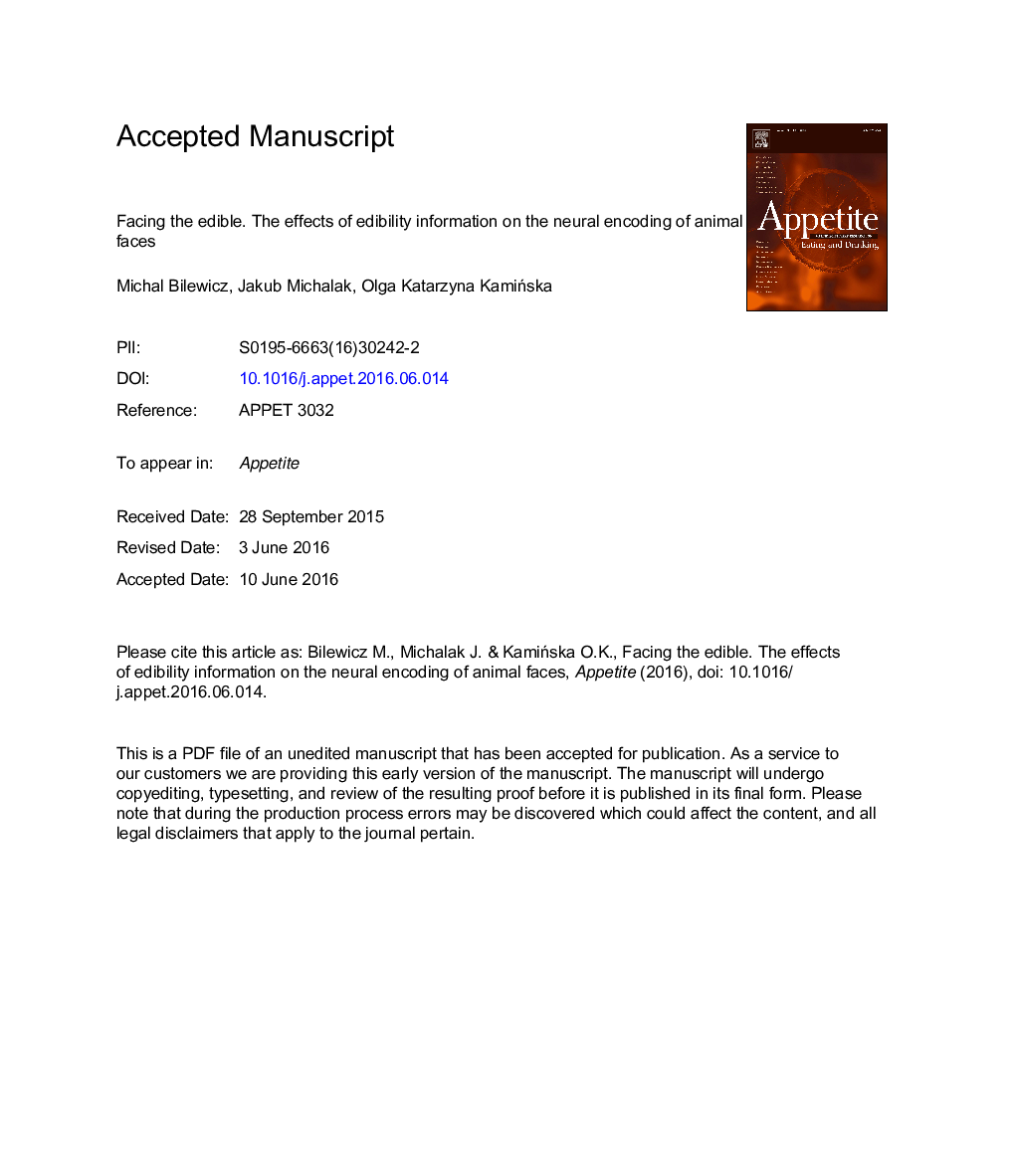| Article ID | Journal | Published Year | Pages | File Type |
|---|---|---|---|---|
| 7307180 | Appetite | 2016 | 23 Pages |
Abstract
Animals perceived as edible are often denied more complex mental capacities or emotions. The process of categorizing and perceiving edible species as distant from humans has been extensively studied on the level of deliberate judgments of animals and humans. In the present study we wanted to determine whether information about the edibility of an artificially created species can affect one of the most automatic processes in humanity ascription: face perception. We focused on early perceptual stages of face processing as manifested in EEG signals by N170 Event Related Potentials. In an experimental study participants were assigned into two conditions, in which they were presented a series of human-animal morphed images. In one of the conditions participants were informed that the images present an edible species. Additionally, we measured participant judgments of the animals' capacity to suffer. Animal faces, which were perceived as non-edible, elicited larger N170 amplitudes than edible animal faces, suggesting that people recognize faces of non-edible animals as a face to a greater extent than edible ones. Importantly, this effect was significant only for those participants who perceived animals' capacity to suffer as relatively low. We discuss the obtained effects as a primary evidence for the very basic and automatic character of the “meat paradox”, visible already in the initial stages of face perception.
Keywords
Related Topics
Life Sciences
Agricultural and Biological Sciences
Food Science
Authors
Michal Bilewicz, Jakub Michalak, Olga Katarzyna KamiÅska,
